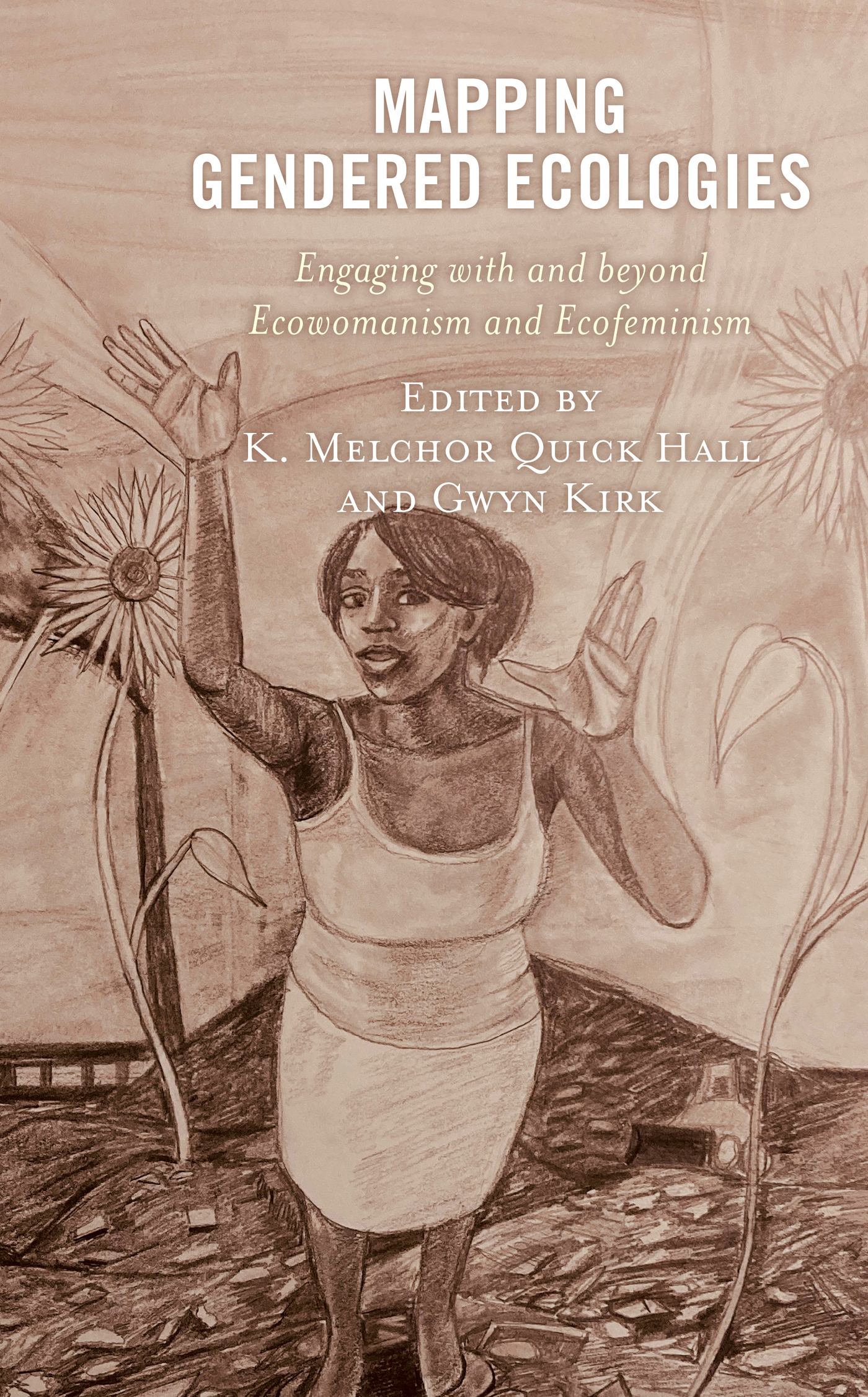Mapping Gendered Ecologies
ENVIRONMENT AND RELIGION IN
FEMINIST-WOMANIST, QUEER, AND
INDIGENOUS PERSPECTIVES
Series Editor
Gabriel Atchison
Environment and Religion in Feminist-Womanist, Queer, and Indigenous Perspectives is a series that explores the subject of ecofeminism from feminist-womanist, queer, and indigenous perspectives. The governing assumption of the series is that ecofeminism is not only a mode of scholarly discourse and analysis, but also a hub for social formation and action. What distinguishes this series in particular is that it focuses on ecofeminism as a disciplinary matrix through which the voices of women, particularly women of color, and indigenous peoples can speak from their religious and spiritual traditions and practices to address the environmental challenges and concerns of the age. Volumes in this series will attend to the environmental and ecological issues that impact women, people of color, and indigenous populations, as these communities are, in almost all respects, the most immediately threatened by contemporary climate and ecological changes and catastrophes. Works in the series will focus on the history; scholarly resources and perspectives; constructive practices; religious, spiritual, and natural traditions from which these voices speak; and how these can provide alternative narratives, illuminate hidden agendas, and generate resistance to environmental and religious racism and exploitation.
Titles in the series
Mapping Gendered Ecologies: Engaging with and beyond Ecowomanism and Ecofeminism, edited by K. Melchor Quick Hall and Gwyn Kirk
Mapping Gendered Ecologies
Engaging with and beyond Ecowomanism and Ecofeminism
Edited by K. Melchor Quick Hall
and Gwyn Kirk
LEXINGTON BOOKS
Lanham Boulder New York London
Published by Lexington Books
An imprint of The Rowman & Littlefield Publishing Group, Inc.
4501 Forbes Boulevard, Suite 200, Lanham, Maryland 20706
www.rowman.com
6 Tinworth Street, London SE11 5AL, United Kingdom
Copyright 2021 by The Rowman & Littlefield Publishing Group, Inc.
Morales, Aurora Levins. Water Road in Silt: Prose Poems. 2019. Reprinted with permission from the author.
Flenniken, Kathleen. Plume: Poems. 2012. Reprinted with permission of the University of Washington Press.
All rights reserved. No part of this book may be reproduced in any form or by any electronic or mechanical means, including information storage and retrieval systems, without written permission from the publisher, except by a reviewer who may quote passages in a review.
British Library Cataloguing in Publication Information Available
Library of Congress Cataloging-in-Publication Data Available
ISBN 978-1-7936-3946-2 (cloth)
ISBN 978-1-7936-3947-9 (epub)
 TM The paper used in this publication meets the minimum requirements of American National Standard for Information Sciences Permanence of Paper for Printed Library Materials, ANSI/NISO Z39.48-1992.
TM The paper used in this publication meets the minimum requirements of American National Standard for Information Sciences Permanence of Paper for Printed Library Materials, ANSI/NISO Z39.48-1992.
KMQH:
To the long history of Indigenous womens healing traditions that have sustained communities.
To Ugandan herbalist Molly Nassali and her son, my friend, Bunny Ssengooba.
May you continue to heal each other and others.
GK:
To the contributors to this collection who share their passion and conviction that the world can and must be organized differently, based on justice, reciprocity, care, and love.
Acknowledgments
KMQH: I want to thank the humans who have made this possible, and especially honor the Nipmuc Indigenous people whose ancestral territory I occupy. Also, I want to honor the black cat who visits my home regularly, whose space I have quite obviously invaded, as well as the den of foxes snuggled under what used to be a pool deck, and now is a garden deck, behind my house. However, it is the connection between human and non-human animals and the relationships of all animals to other elements of nature and spirit that I want to acknowledge here. It is the cat that I do not own and the foxes that humans cannot control that make me feel at home. The black cat in particular has been present for the writing of this book, reminding me of my godmothers home, which happens to have the same house number even though it sits on a different 8-letter street. Her home has seen several black cats that have stood as reminders of our connection to, but not control of, other beings. I am so grateful for the familiarity of ecosystems within which I have been able to thrive, even as I shift location. I continue to shape and be shaped by my environment, and must engage with care for these mutually-sustaining cycles to continue.
GK: I am deeply grateful for life, health, and places to shelter. For the Oakland garden, on Ohlone land, that inspires and grounds me, and to all who share in it: trees, plants, people, animals, insects, and birds. For students, teachers, family, and friends, some of whom I name in the pages that follow. To Cathy Cockrell, Martha Matsuoka, and Margo Okazawa-Rey for helping me express what I wanted to say in this book. To faculty members who helped me keep a toehold in the academy: Susan Cavin, Margi Duncombe, Margaret Gentry, Priya Kandaswami, Judith Raiskin, Myrna Santiago, and Marianne Whelchel. To long-time friends who enrich my life with conversations, love, and support: Christine Ahn, Judith Arcana, Betty Burkes, Alice Cook, Adrienne Cool, Sherry Gorelick, Deborah Lee, Martha Matsuoka, Albie Miles, Aurora Levins Morales, Margo Okazawa-Rey, Carrie Pester, Martin Perrigo, Anne Simon, and Kathy Yep. To the Sunday morning womens circle for your honest reflections on life. To everyone in the International Womens Network Against Militarism; Im honored to work alongside you. Many thanks to Margo Okazawa-Rey for introducing me to K. Melchor Quick Hall; to Gabriel Atchison, series editor, who invited us to edit this collection; to Darrell Gane-McCalla for creating the artwork for the cover; and to Michael Gibson, Kasey Beduhn, and everyone at Lexington Books for getting our words into print. Finally, my deep gratitude to Melchor for such an enriching and rewarding collaboration that I hope will continue long after this book is doing its work in the world.
Chapter 1
Maps, Gardens, and Quilts
Gwyn Kirk and K. Melchor Quick Hall
This chapter outlines the purpose of this anthology and the process by which it came about, using the imagery of maps, gardens, and quilts for a collaborative work that has grown and developed over time, pieced together by many contributors, with motifs that are repeated in varying shapes and sizes. We also offer a road map that provides one way of connecting the chapters. We touch on the questions and convictions we brought to the curating process and the main lessons learned from it. We have each written sections of this chapter, with our own emphases, as well as borrowing from each others words and thinking. Like much of the book, this chapter links personal conversation, analysis, activist projects, and visions of a sustainable future.
Seeding Our Hopes and Expectations
KMQH: This was my first time editing an anthology, and I was not sure what to expect. I imagined that Id give proofing comments on a couple of essays, after selecting my favorite submissions. Although I knew that I wanted to write about my relationship to nature and Earth, I do not think of myself as an ecofeminist or ecowomanist. This was an awkward entry point for me. In spite of that, I kept inviting contributors who I thought had similarly unconventional entry points until I felt at home in this anthology. Now, as we complete the manuscript I see how much of me and my relationships are spread throughout the volume, which is not what I anticipated. At the same time, it seems an important lesson for me about nature, humanity, and community. As editors we are inextricably embedded in the communities represented in this volume, even as we have connected those communities through this text.

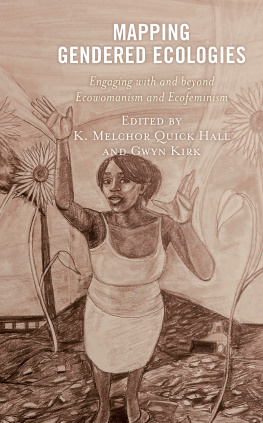
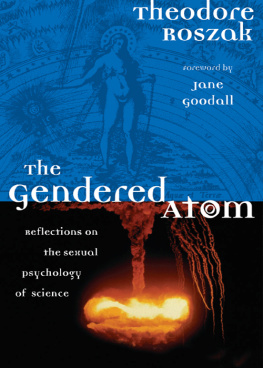
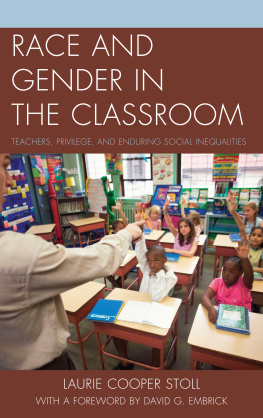
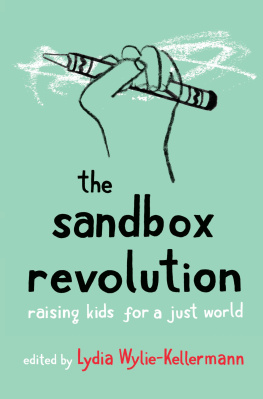
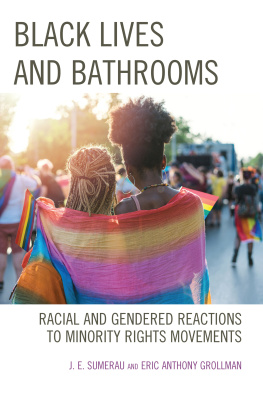

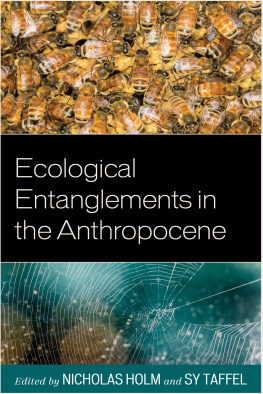

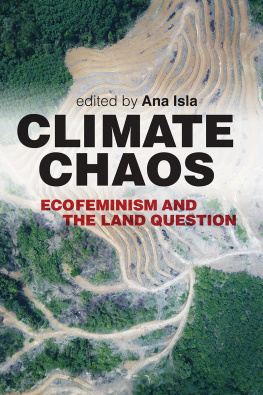
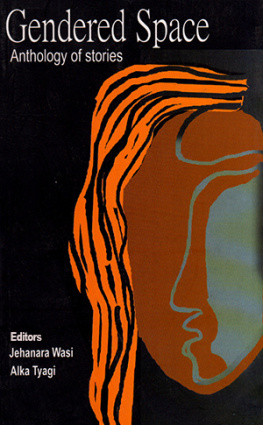
 TM The paper used in this publication meets the minimum requirements of American National Standard for Information Sciences Permanence of Paper for Printed Library Materials, ANSI/NISO Z39.48-1992.
TM The paper used in this publication meets the minimum requirements of American National Standard for Information Sciences Permanence of Paper for Printed Library Materials, ANSI/NISO Z39.48-1992.